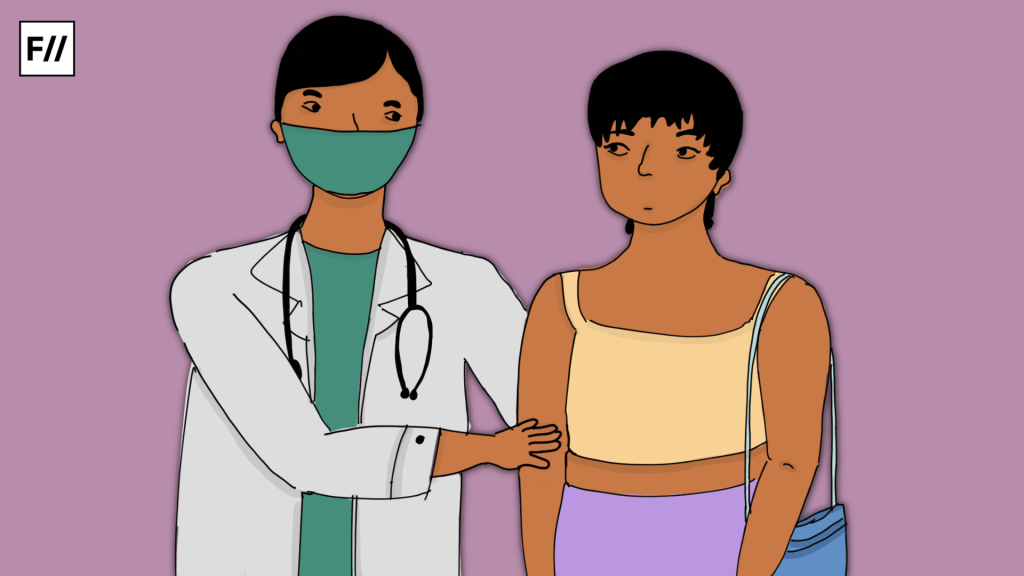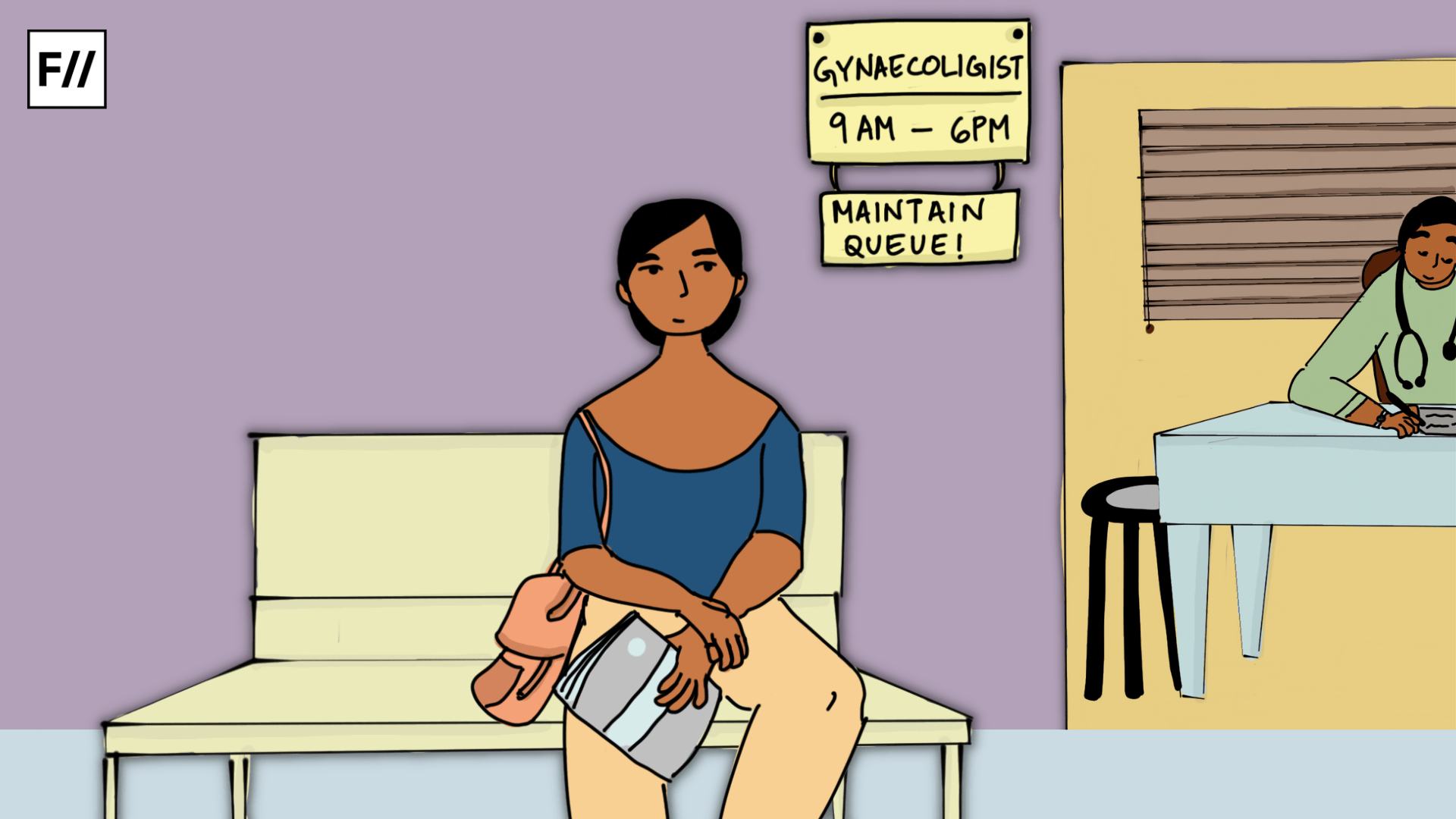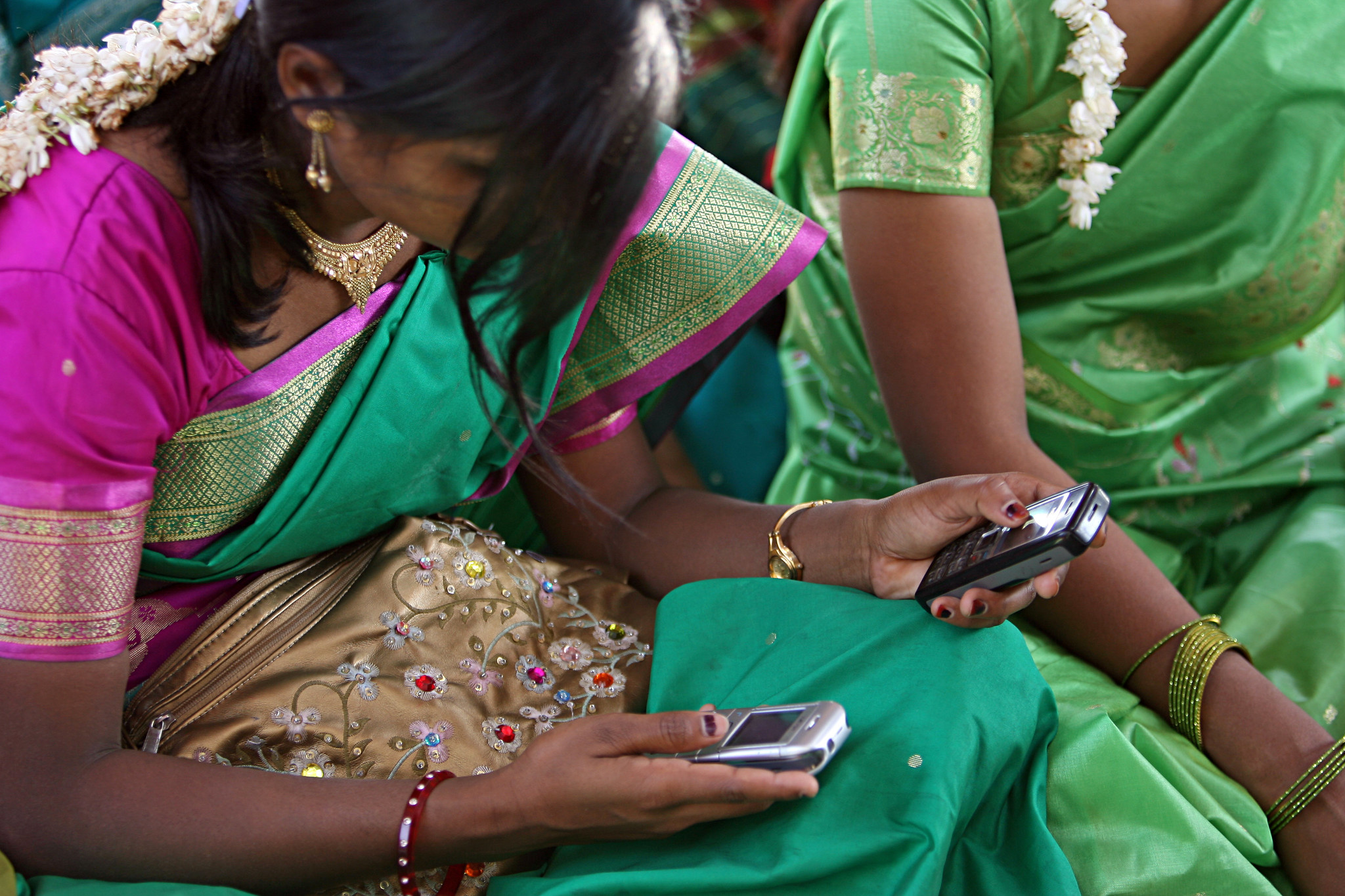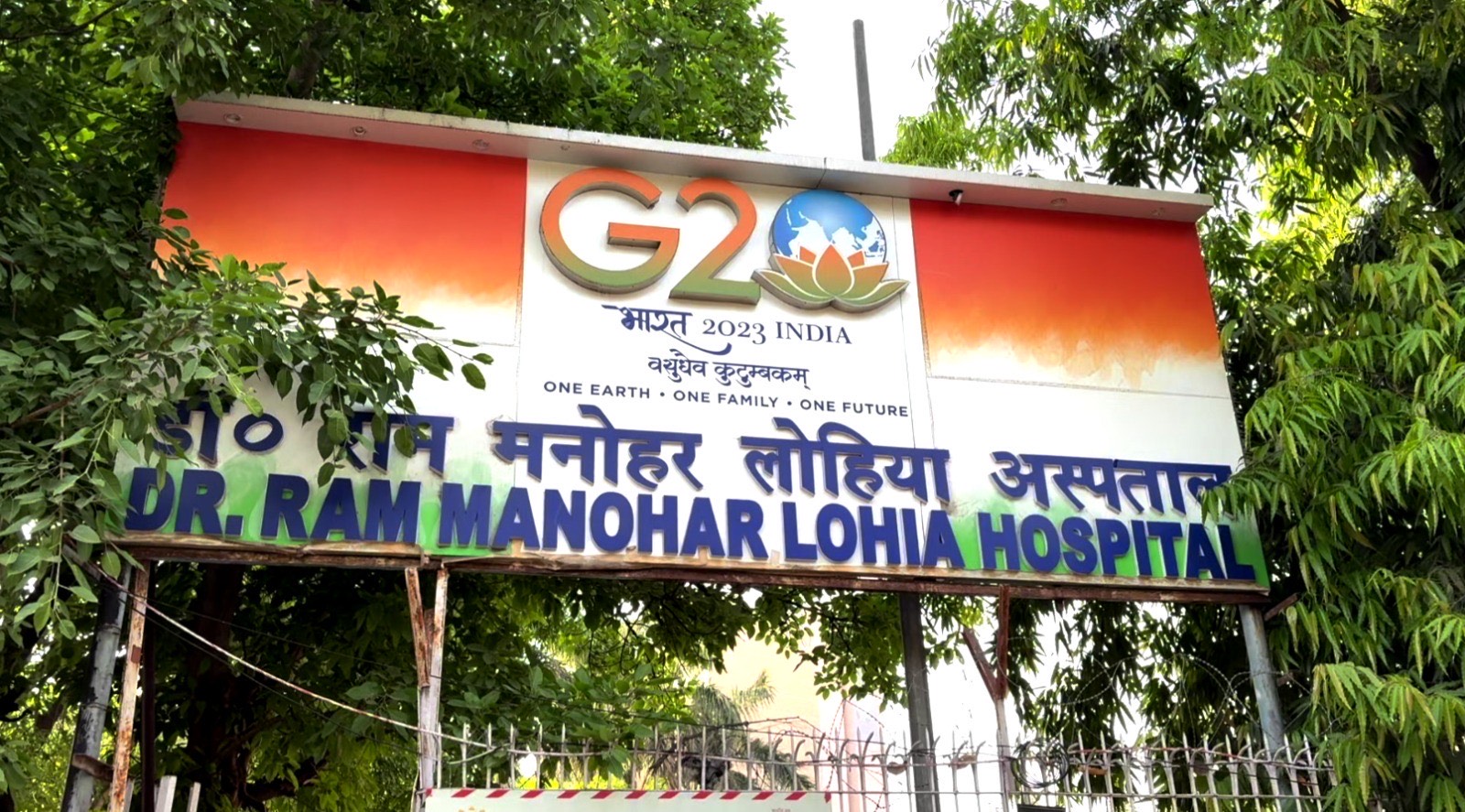Rumaisa*, a 32-year-old woman from HMT, Srinagar, approached a leading hospital well-known for maternity and prenatal care in the valley, for treatment and a checkup during her later stages of pregnancy. She received offensive treatment from the gynaecologist on duty there.
Rumaisa who later gave birth to a baby boy, says, ‘I wasn’t able to walk, I was in so much pain but they didn’t allow me to accompany an attendee. I had to stand in queues, wait for the doctor, I did all of this while in my last stages of pregnancy and with great pain.’
Kashmir, being an orthodox and male-dominated society, is not unfamiliar with pervasive sexism and misogyny. This particular mindset is apparent in a multitude of institutions, ranging from marriage and family to education, among others. Women are expected to live their lives according to religio-cultural patriarchal conventions and regulations. Due to this prevailing standpoint, women themselves often internalise and adopt patriarchal and misogynistic beliefs about other women and perceive reality from a male gaze.
Unfortunately, such outdated notions are prevalent in the healthcare sector as well, especially the labour and maternity rooms, a space most intimate and merits to be progressive and inclusive. Many pregnant women reported that in most hospitals in Kashmir, women are mistreated, sometimes they even go through verbal and psychological abuse. It is alleged that gynaecologists, nurses, and other healthcare workers in labour rooms exhibit a misogynistic attitude.
Misogyny in labour rooms
Rumaisa claims that pregnancy pain is so normalised in our society that even gynaecologists and healthcare workers display an extremely harmful and prejudiced attitude. She says, ‘It doesn’t matter if you are dying with pain, the hospital workers, nurses, and doctors won’t bat an eye.’

Due to this unfair and prejudiced attitude, Rumaisa went to a private hospital to deliver. ‘I am privileged and went to a private hospital but imagine what they do with underprivileged people from rural areas. They treat them like doormats.’
One of the reports in a local news outlet, Rising Kashmir states, “Attendants at Kashmir’s largest maternity hospital, Lal Ded Hospital, have levelled serious allegations against its doctors and hospital administration, claiming that the care and treatment provided in the labour room fall far short of expectations.” The report further mentions, “A patient from Bandipora developed labour pain at her home after which she was taken to sub-district hospital Bandipora. However, doctors feared complications and referred her to LD hospital for treatment the same day. When she was admitted at LD, she was left unattended for four hours in labour despite being a case of risky pregnancy.”
Another woman, Zahira*, alleges that she was slapped by her gynaecologist during her visit with her because she wasn’t following the treatment properly during her pregnancy. Hera* a 26-year-old woman was accompanying her sister while she was going through labour in one of the leading hospitals in Srinagar. What unfolded there was a shocker for Hera. She mentions, ‘The gynaecologist and the nurses were so abusive. They were scolding the pregnant women. One of the nurses said, Why are you crying now, you didn’t cry while having sex.’
She also mentioned while doing a daily routine checkup of pregnant women in the ward, the nurses were saying ‘When you weren’t shy opening your legs while having sex, then why are you shy now.’
This misogynistic and discriminatory treatment doesn’t remain exclusive to Srinagar-based labour rooms and hospitals, this extends to father regions also, where pregnant women are mistreated based on their class and region. Several women from the Kupwara region alleged that they were treated harshly. One of the women says that they are treated fairly only when they have a certain approach or rapport with the doctors. Pregnant women from this region also express dissatisfaction with the experience of waiting in queues, undergoing various tests, and being examined independently without appropriate assistance.
Besides the internalised misogyny that these healthcare workers exhibit, this unfair treatment exists because women’s pain is normalised in our society. Women’s position in society is often conditioned to be subservient and passive, bereft of all pain. This pain bais is often visible in labour and maternity rooms. The gender pain gap is often visible in healthcare as the emphasis is mostly given to men as patients and the research also revolves around men. According to an article by Fortune, “To this day, we don’t truly know how women metabolize and react to many medicines, why some adverse reactions are more common in women, nor how women experience or manifest pain. The efficacy, dosage, and side effects of many drugs were never tested on women.”
The article further mentions, “Research published in 2020 from UC Berkeley and the University of Chicago, found that medications are routinely overprescribed to women because the clinical trials were conducted only on cisgender men, and women also experienced worse side effects in 90% of cases. The study also concluded that this ‘sex difference was not explained by sex differences in body weight.'”
WRDA, a feminist organisation based in the United Kingdom, in a report titled, The Gender Pain Gap- the reality of women’s health inequalities, writes, “There have been cases in which women are receiving painkillers with a lower dosage when they report having the same pain as a man, with the man receiving a painkiller with a higher dosage, which emphasises how healthcare workers also enforce the gender pain gap, discriminatory attitudes, and all of this causes the systemic failure of healthcare to expand more. Women are dismissed and have their pain undermined, with views such as ‘it’s just a matter of life,’ or ‘that’s a normal part of womanhood.'”
FII tried to reach gynaecologists in the valley but they refused to comment. Madhu Syal, a leading gynaecologist in Srinagar, refuted all allegations when asked about the misogynistic approach and harsh treatment towards pregnant women in labour rooms. She mentioned that the valley has the best maternity healthcare and support available. She and her colleagues also take great care of pregnant women. However, she mentioned, ‘Sometimes, during normal delivery, the gynaecologist can be a little rash because the situation is tense. I don’t think anyone beats or scolds. I don’t think there is mistreatment or abuse. I have never done it nor have my colleagues.’
A call for sensitisation of healthcare workers and gynaecologists
Obstetric violence and misogynistic treatment are not exclusive to the region of Kashmir or South Asia. This issue is prevalent even in the most progressive western societies. An article in Vice News writes, “The term ‘obstetric violence’ appears nowhere in US law, but other countries like Venezuela and Argentina are beginning to define it as a crime against people giving birth. It is an umbrella term that includes disrespectful attitudes, coercion, bullying, and discrimination from care providers, lack of consent for examinations or treatment, forced procedures like C-section by court order, and also physical abuse.”

Women especially in Kashmir often ignore these issues and go back home happily if both the baby and mother are healthy. Often they think this treatment is justified considering the doctors have experience and knowledge about women’s bodies. However, that is not the case. There needs to be more awareness towards birth justice and rights. Birth justice is part of reproductive justice that recognises women’s bodily autonomy, and right to make decisions over having children and where and how to deliver. Women can raise alarm if they are mistreated. They can even complain about such abusive and violent treatment to their local police and bring the hospital administration or a particular gynaecologist to accountability.
Apart from women getting awareness and education about reproductive and birth justice, gynaecologists and healthcare workers need to be sensitised. They need to be progressive and inclusive towards women from all walks of life. There must be curriculums for sensitisation towards women’s pain, experience and birth rights, in all medical colleges and institutions. Healthcare workers and gynaecologists need to go through proper workshops and training to facilitate a sensitive approach towards pregnant women’s emotional and mental needs. There needs to be a more empathetic approach towards pregnancy and the normalisation of pregnancy and women’s pain needs to be eliminated. Pregnant women’s dignity, autonomy, respect and human rights should be safeguarded at all levels. Gynaecologists and healthcare workers must be empathic and sensitised towards pregnancy and should inculcate more human rights approaches towards pregnant women.
*names have been changed to protect the identity
About the author(s)
Shahinda is a multimedia journalist with an experience of more than five years. She has an interest in covering politics, gender, conflict, and gender-based violence/crime. In addition, she has experience in reporting, photography and documentary filmmaking. She has done her Masters in Mass Communication from AJK MCRC Jamia Millia Islamia, New Delhi.






This is a great article and illustrates that obstetric violence is a global issue indeed. The Exposing the Silence Project did an excellent job shining a light on this issue as well – check it out: exposingthesilence.com.